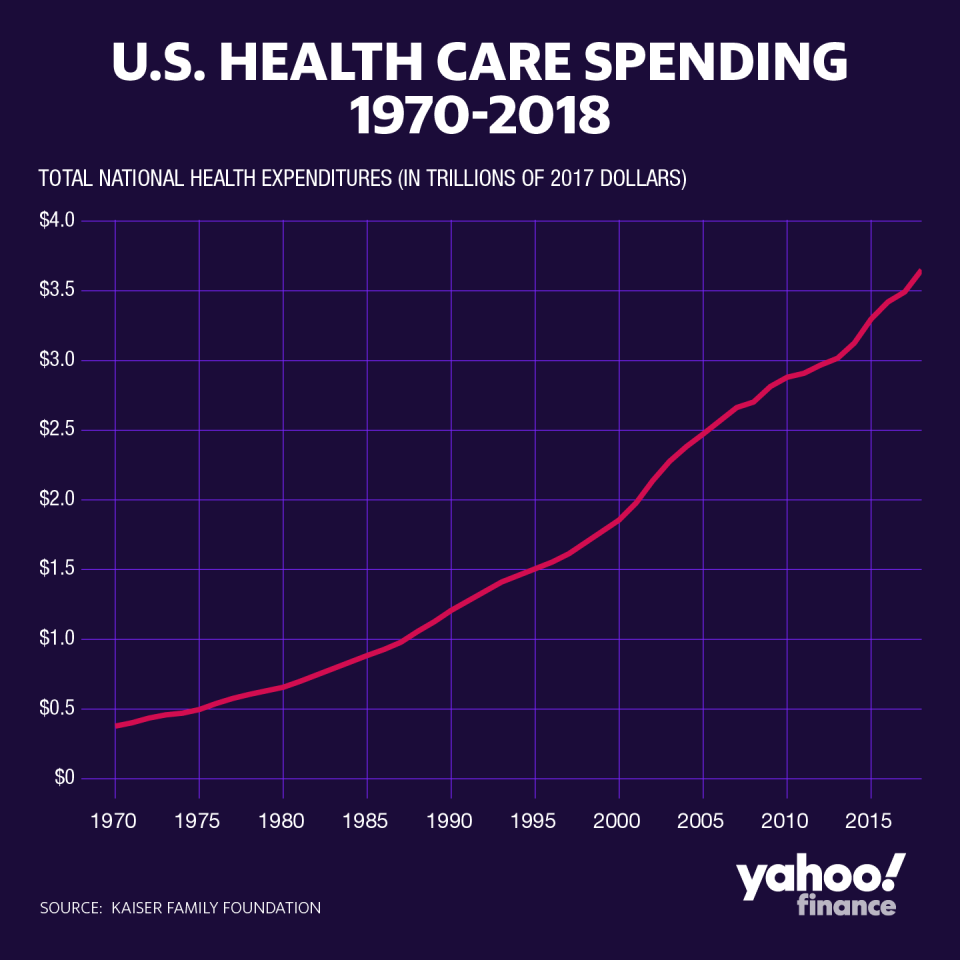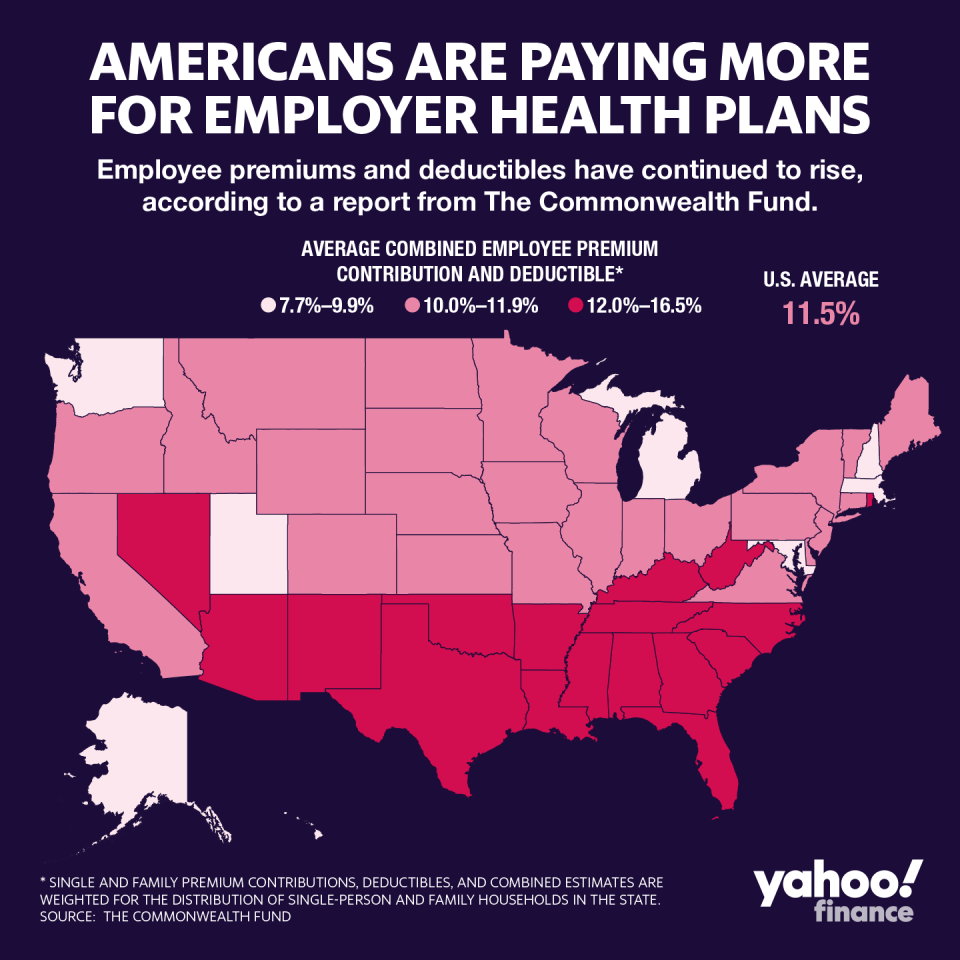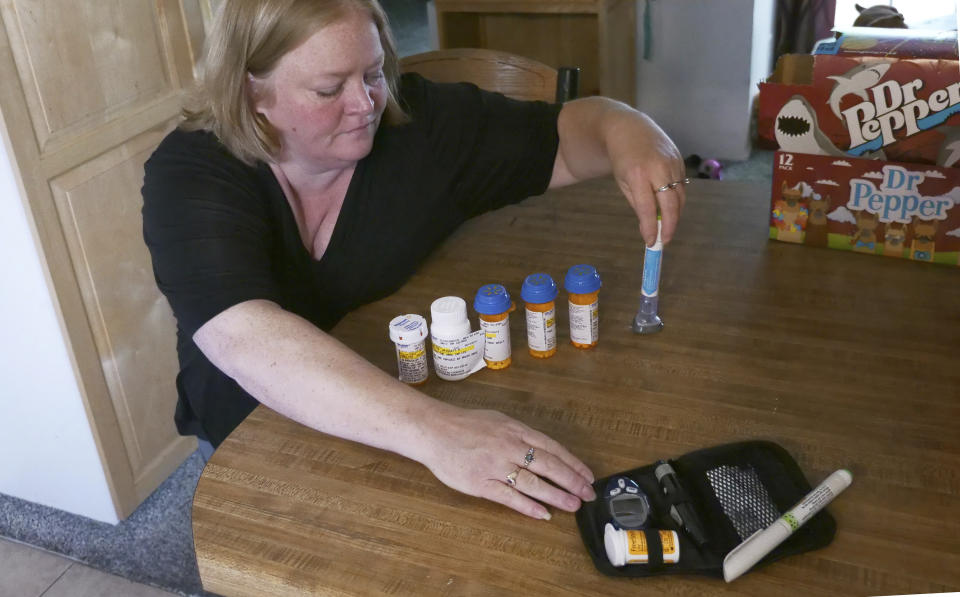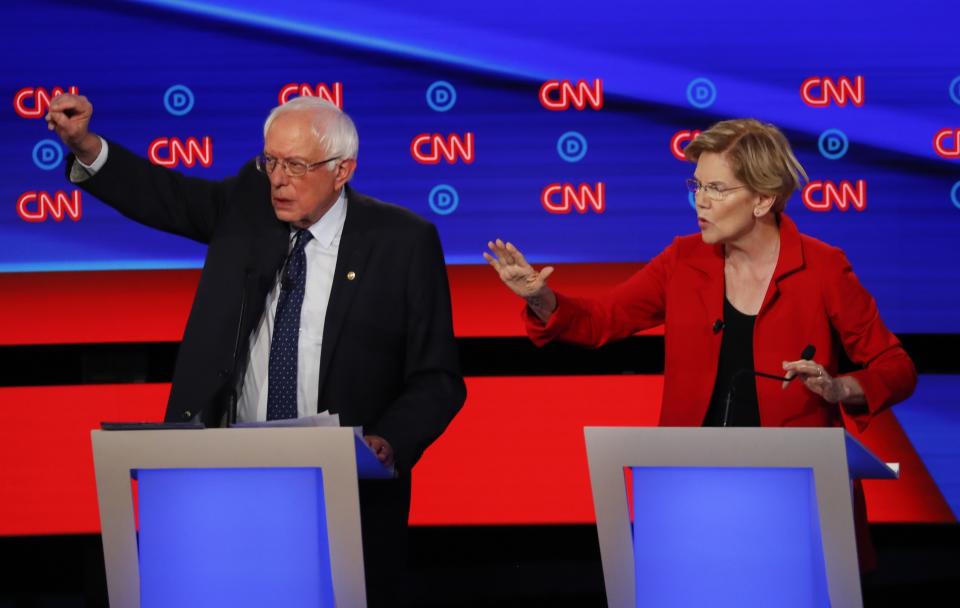'Top of mind for voters': A record number of Americans are putting off health care due to the cost
Health care costs keep going up, with no ceiling in sight. The latest 2018 national health expenditure data from the Centers for Medicare and Medicaid Services (CMS) found that total national health care spending grew 4.6% last year, reaching $3.6 trillion in 2018.
And the trend is having an effect on everyday Americans. According to a recent Gallup poll, “a record 25% of Americans say they or a family member put off treatment for a serious medical condition in the past year because of the cost, up from 19% a year ago and the highest in Gallup’s trend.”

It’s not just serious conditions that aren’t receiving appropriate medical attention — the survey also found that 33% of Americans have put off treatment for any condition because of costs.
“What we have found is that Americans have consistently put health care costs at the top of their list when it comes to health care issues,” Ashley Kirzinger, associate director of public opinion and survey research at the Kaiser Family Foundation, told Yahoo Finance. “Health care costs was the top issue among health care issues in the 2018 midterm elections. And we are already seeing health care costs being top of mind for voters heading into 2020. So I think what this shows is that there is a consistent and increasing prevalence of health care costs on what people think about health care in this country.”
‘It’s those out-of-pocket costs’
As the 2020 presidential election inches closer and closer, health care has become one of the central talking points among the various Democratic candidates. Some of the more progressive ones, like Sens. Elizabeth Warren and Bernie Sanders, have proposed Medicare for All. Others like Pete Buttigieg have proposed alternatives to universal health care, such as Medicare for All Who Want It.
“It seems to me that cost is kind of dominating the conversation nowadays,” Kirzinger said. “And previously when we talked about costs, a lot of the conversation were dealing with how much the government is spending on health care, and now the focus is really on how much individuals are paying for their health care.”

She continued: “We ask people what about their health care is the most expensive and the greatest financial burden on them, and they don’t really seem to be struggling with their monthly premiums... it’s those out-of-pocket costs. So their deductibles or their copays, those sort of things. People are postponing their medical care because they can’t afford the out-of-pocket costs that are associated with that care.”
CMS data showed that out-of-pocket spending made up for 10% of all health care expenditures in 2018. This includes copays, deductibles, and spending not covered by insurance. The total costs grew 2.8% to $375.6 billion in 2018, faster than projected.
A study from the Commonwealth Fund found that in 2018, employee premiums and deductibles for both single-person and family policies rose to an average of $7,388. In nine states, the total exceeded $8,000, while the lowest rate was $5,815 in D.C. The total cost of premiums and deductibles came out to 11.5% of median income in 2018, which is up from 7.8% in 2008. This varies by state across the country.
“Employer health care coverage is leaving millions of families exposed to high and potentially unaffordable costs,” Commonwealth Fund President David Blumenthal said.

‘Addressing the cost of health care ... is very complicated’
The Gallup poll findings are in line with a previous study from the Kaiser Family Foundation that found nearly half of U.S. adults said they or a family member put off or skipped some sort of health or dental care because of cost. The data also indicated that 29% of all adults reported not taking their prescribed medicines at some point in the last year because of the cost.
And although most Americans don’t report struggling to pay for their prescriptions, there’s a reason for that.
“The majority of Americans don’t struggle with prescription drug costs because they don’t take a lot of prescription drugs,” Kirzinger said. “But for the chronically ill or those who suffer from chronic conditions, those are the ones that are having to take you five, six, seven, or more prescription drugs. And those are the ones that are really struggling with the cost of their prescriptions. And those are the populations that definitely need to be taking their prescription drugs.”

CMS data found that retail prescription drug spending grew 2.5% in 2018 to $335 billion overall. There have been efforts by both Democratic and Republican lawmakers to curb the prices of prescription drugs, although an attempt by the Trump administration for more price transparency was stymied in court.
“I do think a number of lawmakers are paying attention to the fact that what Americans are really concerned about are health care costs,” Kirzinger said. The problem is that addressing the cost of health care in this country is very complicated.”
‘Candidates are going to have to be talking about this’
On top of prescription drug prices, other health care expenditures are on the rise as well. Private health insurance spending accounted for 34% of all health care spending in 2018, increasing 5.8% to $1.2 trillion overall. According to CMS, “the acceleration was driven in part by an increase in the net cost of private health insurance, which was a result of the reinstatement of the health insurance tax in 2018 following a one-year moratorium in 2017.”
Meanwhile, Medicare spending grew 6.4% to $750.2 billion in 2018, accounting for 21% of total health care spending. Medicaid spending, on the other hand, increased 3% to $597.4 billion that same year, making up 16% of all health care spending.

Kirzinger sees this issue of health care spending becoming a major issue heading into next year, particularly among the presidential candidates.
“This will be among the top issues in the 2020 presidential election,” she said. “We’re already seeing that. Right now, the Democrats’ focus around Medicare for All has been dominating the conversation. But as we move into the general, we’re going to hear more about Americans struggling with health care costs and the candidates are going to have to be talking about this.”
Adriana is an associate editor for Yahoo Finance. She can be reached at adriana@yahoofinance.com. Follow her on Twitter @adrianambells.
READ MORE:
Rising employee premiums and deductibles in the US are 'leaving millions of families exposed'
Millennials 'are seeing their health decline faster' than Gen X, worrying experts
Read the latest financial and business news from Yahoo Finance
Follow Yahoo Finance on Twitter, Facebook, Instagram, Flipboard, SmartNews, LinkedIn, YouTube, and reddit.

 money
money 
